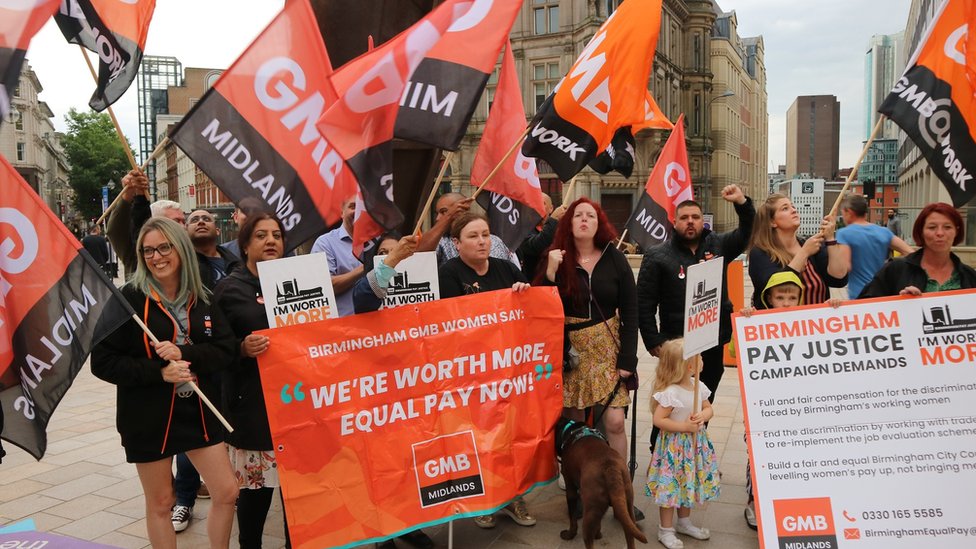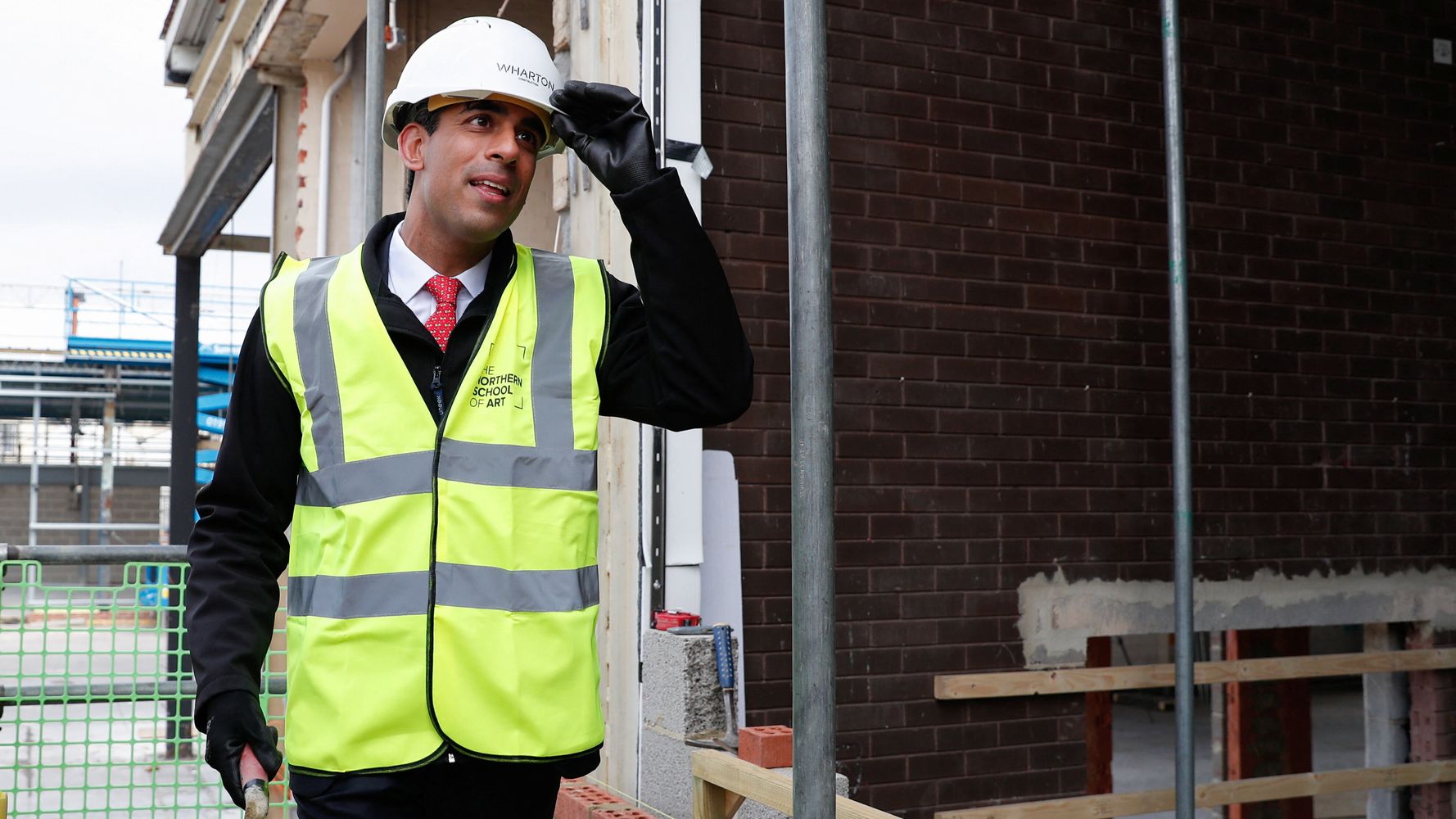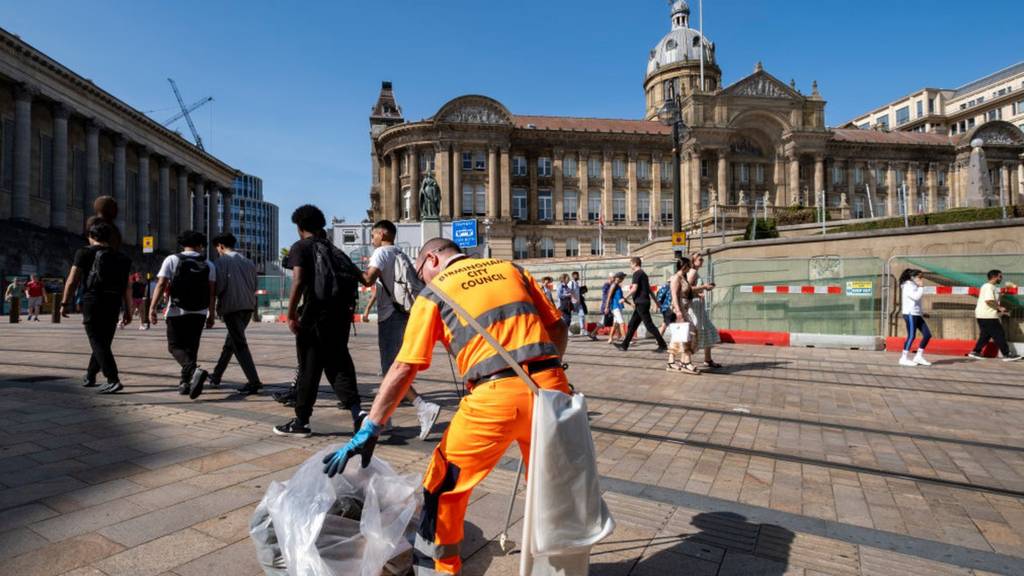Amid Government Distancing: This Is How the UK’s Second-Biggest City Declared Its Bankruptcy

Birmingham City Council, the UK’s second-biggest city, declared bankruptcy this week, causing panic in local political circles, especially since this council is the largest in Europe.
The council, which provides services to about 1.15 million people in the center of the kingdom, complained of an annual deficit of £87 million, amid financial pressures and a commitment of hundreds of millions due to the famous issue of equal pay.
Councils across England and Wales are under increasing financial pressure amid rising welfare costs, rising inflation, and falling incomes.
According to the Financial Times, Birmingham City Council announced last month that it faced a budget deficit of £87.4 million for 2023/2024, which is expected to rise to £164.8 million in 2024/2025.
The UK is facing difficult economic conditions due to the war in Ukraine, the rise in energy prices it caused, the ongoing effects of the COVID-19 pandemic, in addition to the turmoil resulting from its exit from the European Union (Brexit).
Birmingham’s Bankruptcy
Birmingham’s local authorities have announced that the council is in a financial position that does not allow for any new spending commitments other than essential services.
In a statement dated September 5 and reported by the Financial Times, the council, which is run by the opposition Labour Party, said it implemented strict spending controls last July, adding that government assistance was a necessary step in its quest to save the city from recession.
The financial officer of the city council also issued a memorandum announcing Section (114) of the Local Authorities Law, which means stopping all spending by the council except for the basic expenses of caring for the elderly, collecting waste, and distributing aid to the poorest groups.
Council President John Cotton said that the step of declaring bankruptcy is necessary in order for our city to get back on its feet economically.
In its bankruptcy statement, the council blamed the decline in the economic situation, which deprived the council of many incomes, and the high inflation rate in the country.
The council announced in its statement that it had submitted a request for urgent assistance from the Local Government Association in Britain.
The council, which is the second-largest local authority in Europe, includes 101 members (65 from the Labor Party, 22 from the Conservatives, 12 from the Liberal Democrats and two from the Greens).
The local council took this step after being unable to pay a huge bill incurred for more than 10 years to compensate those affected by unequal wages.
In 2012, the country’s Supreme Court ruled compensation in favor of about 174 workers, most of whom were women who were subjected to discrimination in wages and were deprived of the bonuses and financial increases that male employees received.
Indeed, the council paid £1.1 billion in compensation to all those affected by unequal pay, while it still must pay £760 million in the current fiscal year 2023–2024.
Birmingham is one of the cities that Britain relies on a lot for many major events, and it has also won the organization of the European Athletics Championships in 2026. However, the bankruptcy announcement raised doubts among many about the city’s ability to organize such a large event.

Government Distancing
Immediately after the bankruptcy announcement, the British government distanced itself from this crisis, and Conservative Prime Minister Rishi Sunak stated that the council is responsible for this situation and that councils have broad powers and his government cannot do anything in this regard.
Downing Street acknowledged that the council declaring itself to be in financial distress would be concerning for residents.
The prime minister’s official spokesperson said: “The government for its part has stepped in to provide support, an additional £5.1bn to councils in 23–24, which is more than a 9% increase for Birmingham city council.”
He added that “clearly it’s for locally elected councils to manage their own budgets, and that the government had expressed concern about their governance arrangements and has requested assurances from the leader of the council about the best use of taxpayers’ money.”
He acknowledged Birmingham had a particular issue around equal pay settlements and said ministers had commissioned an independent governance review, which will report in the coming weeks.
In turn, Councilor Robert Alden, leader of the Conservative opposition, said: “Labour’s failure in Birmingham has become clear for all to see. What Labour pledged as a golden decade ahead to voters in 2022 turns out to be based on budgets in 2020/2021 and 2021/2022 that did not balance and were unfunded.
“Combined with Birmingham Labour’s refusal to deal with equal pay over the last decade, this has created this mess where residents will now lose valuable services and investment,” he said.
“Birmingham Labour have no grip on their mess and no ability to fix it, hence why the final say on spending control has now been removed from the Labour political leadership,” Alden added.
It is noteworthy that political calculations interfere greatly in such files, especially since the opposition Labour Party is the one that leads this important council in the country, and Sunak does not want to give it any gift, especially with the decisive election year approaching.
However, government representatives will have to sit down with Birmingham City Council to consider the possibility of providing assistance or granting the council some loans, according to analysts.

Councils in Crisis
The Government Research Institute warned of the risk of other local councils declaring bankruptcy due to business failure and the decline in income they receive fro m business taxes.
The institute explained that local authorities in the United Kingdom saw their income decline by 17.5% between 2009 and 2020.
More than a decade of austerity in English local government has squeezed local councils to their utter financial limits.
Government grants are expected to total £61.7 billion in 2023–24. That represents a £1.9 billion (3.2%) increase in real terms over 2022–23 budget data.
However, this recent reversal in local government funding is not enough to offset the decade-long cuts to government funding.
Birmingham City Council’s bankruptcy follows similar announcements by smaller local councils; Woking City Council issued a Section 114 notice last June over what it said was a very serious financial deficit due to its historic investment strategy that led to unsustainable borrowing.
Croydon Council also issued its third notice under Article 114 in two years in November 2022 due to a £130 million shortfall in its budget.
Thurrock, in Essex, made the move in December 2022 after it struggled to borrow large sums of money to invest in solar energy.
The first council to declare bankruptcy in Britain was Northam Shire Council in 2018 when it found itself drowning in debt estimated at about £1 billion.

A collective of 47 urban councils, known as SIGOMA, announced last month that 10% of members were considering making a Section 114 this year, while close to 20% said it could be possible in the next year.
Councilor Sir Stephen Houghton, Chair of SIGOMA, said: “Councils are facing severe uncertainty — the government must deliver clarity on funding in the coming years, including on proposed reforms that are long overdue.”
At least 26 more councils, including Stoke-on-Trent, Kent, and Kirklees, are deemed at risk of bankruptcy in the next two years.
Sources
- Birmingham city council declares itself in effect bankrupt
- Birmingham City Council effectively declares bankruptcy after being hit by £760m bill
- Birmingham city council declares itself in financial distress
- Seven other councils to have gone bankrupt as Birmingham City Council goes bust
- Birmingham’s bankruptcy is only the tip of the iceberg – local authorities across England are at risk
- One in ten SIGOMA councils facing Section 114 notice [Study]











